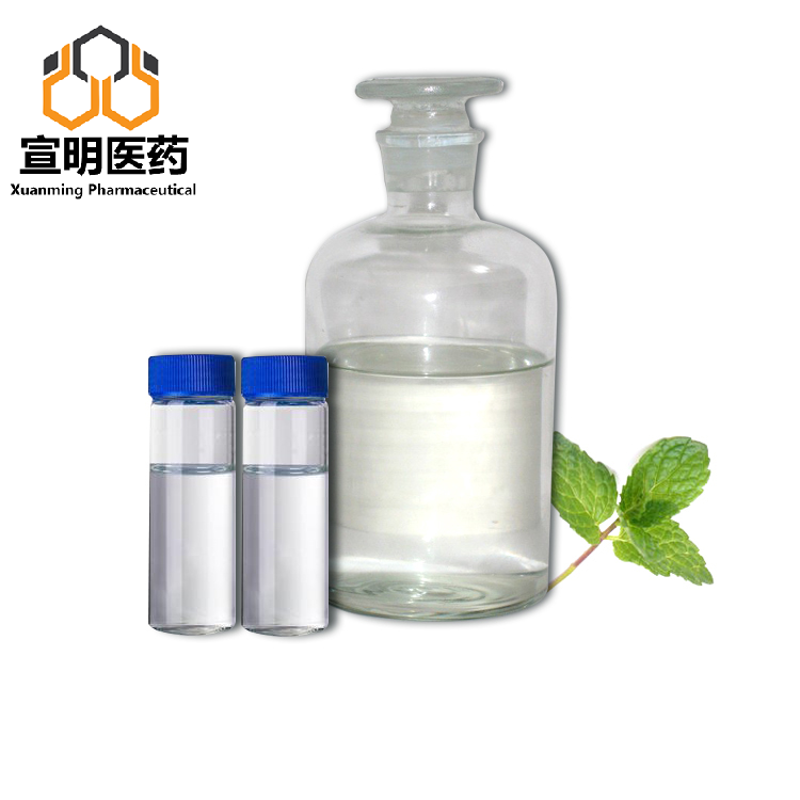-
Categories
-
Pharmaceutical Intermediates
-
Active Pharmaceutical Ingredients
-
Food Additives
- Industrial Coatings
- Agrochemicals
- Dyes and Pigments
- Surfactant
- Flavors and Fragrances
- Chemical Reagents
- Catalyst and Auxiliary
- Natural Products
- Inorganic Chemistry
-
Organic Chemistry
-
Biochemical Engineering
- Analytical Chemistry
-
Cosmetic Ingredient
- Water Treatment Chemical
-
Pharmaceutical Intermediates
Promotion
ECHEMI Mall
Wholesale
Weekly Price
Exhibition
News
-
Trade Service
| Brain implants promise to treat depression |
A woman suffering from severe depression successfully used a radical new treatment-implanting electrodes deep in the brain for a period of 1 year
.
"Everything is getting better and better
Katherine Scangos of the University of California, San Francisco, said: "These results give us hope for the much-needed, biomarker-based treatment of mental illness
.
"
Currently, this therapy can only be used for patients with the most severe depression, because it involves two brain surgeries and requires several days of recording electrical signals from the brain to determine each person’s symptom pattern, or "neurobiomarker
.
" More critically, as long as a specific pattern of brain activity is detected, the implant will emit stimulation when needed, hundreds of times a day
In fact, a simpler way of brain stimulation, that is, the device has been working, is now used to treat movement disorders (such as Parkinson's disease)
.
This continuous brain stimulation therapy has previously been tested in patients with depression, but the results of the trials have been uneven.
Sarah has been suffering from depression since she was a child, and multiple medications and electroconvulsive therapy were of no avail
.
Before the operation, she had thoughts of suicide several times every hour
When the implant was opened in another part of the patient's brain called the right abdominal capsule/ventral striatum (VC/VS), the gamma brain waves and depression symptoms were relieved
.
Sarah said: "When I was stimulated for the first time, I felt the strongest happiness.
VC/VS is also thought to be related to depression
.
In some continuous brain stimulation tests in the past, some people with severe depression had brain surgery to remove the area
The high-frequency stimulation performed in this new study is believed to reduce brain activity by preventing the normal firing of brain cells near the area, temporarily mimicking the effect of surgery
.
In Sarah's case, the stimulation reduced the right VC/VS activity, thereby suppressing the gamma brain waves in the right amygdala
After preliminary investigations, the research team implanted two connected permanent electrodes for Sarah
.
In this way, one electrode in the VC/VS will only discharge when the other electrode detects the gamma wave in the amygdala
.
It is activated about 300 times a day, each lasting 6 seconds, and it is set to a lower intensity, so Sarah will not have a noticeable feeling
.
"We don't want to interfere with her life
.
" Scangos said
.
When the device started working, Sarah did notice an improvement in her mood
.
"This is a gradual process, and my view of the world is changing
.
" She said, "As time goes by, a virtuous circle has occurred-everything has become more and more acceptable, and more enjoyable
.
Now, after 1 year of treatment, this device has freed me from depression
.
"
Scangos plans to use the same method for 11 other people
.
And Keyoumars Ashkan of King's College Hospital in London said the results are impressive, but it should not be assumed that it applies to everyone
.
"Maybe everyone has slightly different brain circuits related to emotions
.
" (Source: Lu Yi, China Science News)
Related paper information: https://doi.
org/10.
1038/s41591-021-01480-w
org/10.
1038/s41591-021-01480-w https://doi.
org/10.
1038/s41591-021-01480-w







